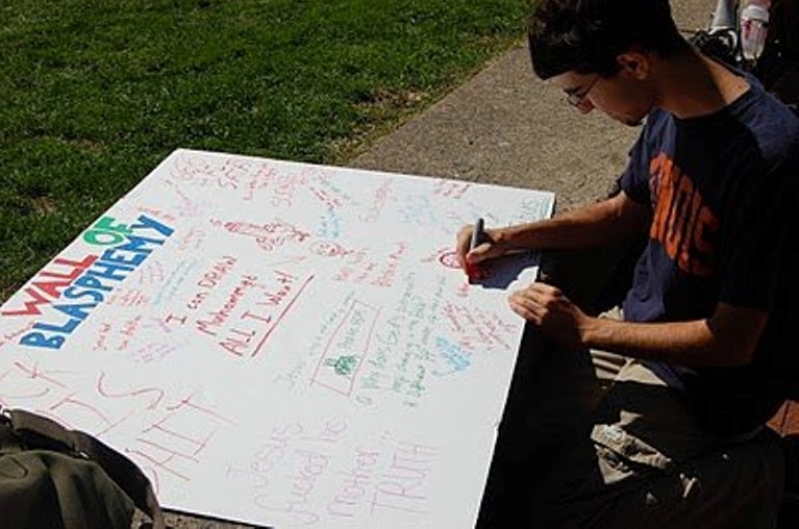
Members of an atheist group preparing to observe the upcoming International Blasphemy Rights Day on Friday, Sept. 30, said laws around the world that restrict or punish those who criticize religion take away the rights of atheists, Christians and other people, alike. Center for Inquiry members believe free speech is the foundation on which all other liberties rest. The group has held this annual blasphemy observation since 2009.
"Without having the right to express our opinions, however unpopular, those willing to use political clout, violence and threats will stifle dissent -- and we will all suffer the consequences of this," states the group's mission.
"In too many countries around the world, criticizing religion is illegal. We've seen the consequences of these laws too many times - when a tweet or a post on Facebook declaring one's atheism or questioning a tenet of religion leads to arrests, beatings, prison, and sometimes death sentences," the Center for Inquiry representatives shared in a statement on Monday.
"Sometimes religious militants make their own laws, deciding for themselves that expressions of dissent justify brutal killings, like the grisly murders of secularists in Bangladesh, or attacks on religious minorities in Pakistan," the group added.
The Facebook page for International Blasphemy Rights Day highlights stories of several different people who have faced jail time or other punishments for criticizing or doing something that goes against the dominant religion of their respective countries.
One story reported by The Mirror earlier in September noted that Russian blogger Ruslan Sokolovsky is facing a potential five years in prison for filming himself playing the Pokemon Go mobile game while in church, which led to his arrest on the charges of "preventing the realization of the right to freedom of conscience and religion and incitement of hatred."
Another report highlighted the four-year legal battle of Turkish pianist Fazıl Say, who had to fight his country's legal system over charges of "insulting religious beliefs held by a section of society" for re-tweeting several lines by an 11th century Persian poet.
Christians also HAVE suffered under blasphemy laws, such as the case of Christian mother of five Asia Bibi in Pakistan, reports The Christian Post. Bibi served five years in prison and faced a suspended death sentence for allegedly insulting the Islamic prophet Muhammad during an argument with a group of Muslim women she had been working with, which prompted campaigns for her release by persecution watchdog groups.
Michael De Dora, director of the CFI's Office of Public Policy, noted many governments have strongly condemned blasphemy laws. "The problem is many of these condemnations are just words. What we could really use is more governments using the possibility of changing or pulling out of trade and other agreements to put some force behind these words."






